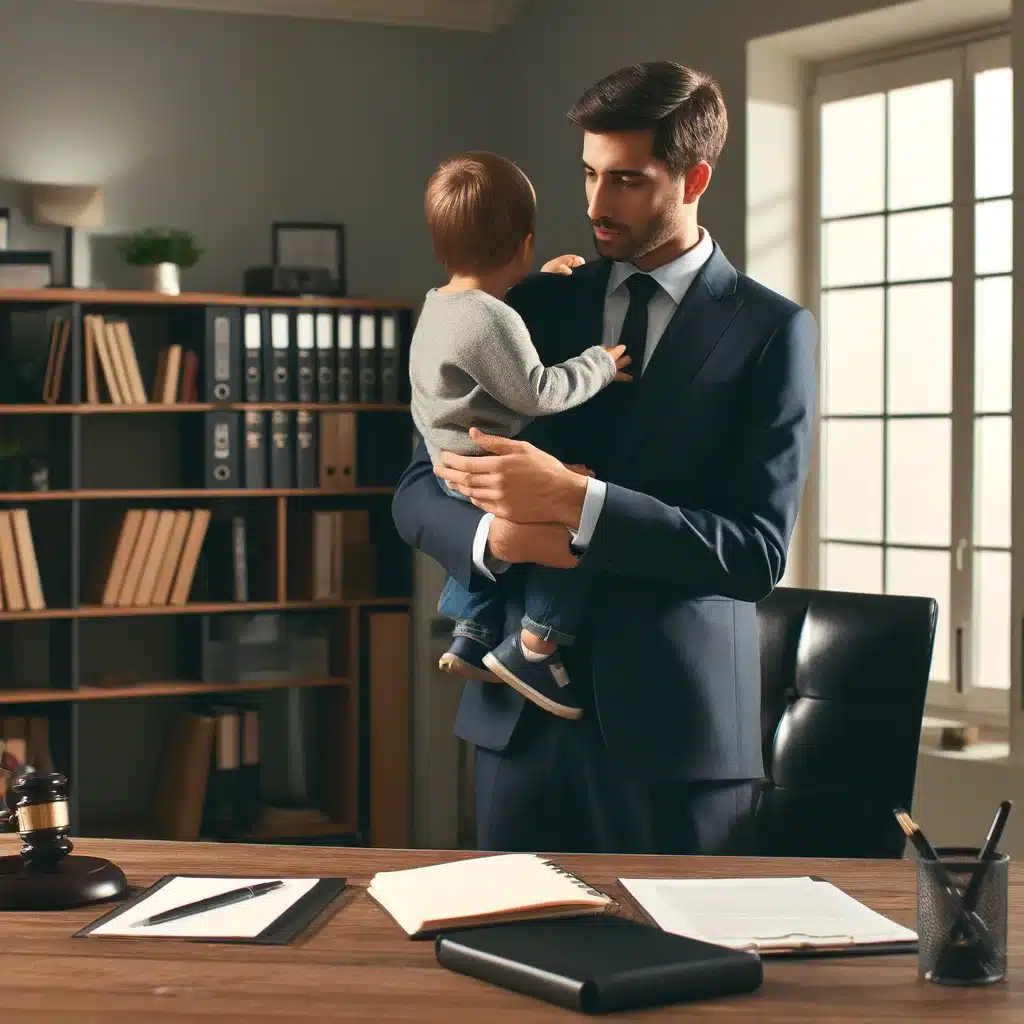
The role of a child custody lawyer in Texas mediation vs. courtroom litigation holds significant weight when navigating custody disputes during divorce.
In Texas, conservatorship decisions affect not just legal rights but also a child’s day-to-day stability. Whether parents settle through mediation or present their case in court, the outcome can shape a child’s future. Each legal route comes with challenges, but the support of a knowledgeable custody lawyer ensures parents remain protected while working toward the best interest of their child. This article explores the differences between mediation and litigation and how legal counsel plays a critical role in both paths.
Understanding Child Custody Law in Texas
Texas uses the term “conservatorship” instead of custody.
Two common types exist—joint managing conservatorship and sole managing conservatorship.
In joint managing conservatorship, both parents share rights and duties. This often includes decisions on education, medical care, and extracurricular activities. In sole managing conservatorship, one parent holds those decision-making powers. The court decides based on what serves the child’s best interest. That standard guides all custody outcomes in Texas.
Factors include emotional and physical needs, each parent’s involvement, stability, and the ability to cooperate. Whether through mediation or courtroom litigation, these elements remain central to the final decision.
How Mediation Works in Texas Custody Cases
Mediation offers a structured but informal process where parents work toward mutual agreements. A neutral third-party mediator leads the discussion.
The goal is to reach a resolution without judicial intervention. Mediation sessions involve both parents, their attorneys, and the mediator. The setting is private and focused on collaboration, not confrontation. Agreements reached during mediation are drafted into a formal parenting plan.
Once signed, the court reviews and, if appropriate, approves it as part of the custody order. This approach keeps control in the hands of the parents and out of the courtroom.
The Lawyer’s Role During Mediation
Lawyers provide crucial support during mediation. They prepare their client in advance by reviewing priorities, concerns, and acceptable compromises. During the session, they offer advice, guide negotiations, and protect legal rights. A custody lawyer ensures the proposed agreement complies with Texas law and serves the child’s best interest.
They also help prevent one parent from being overpowered or misled during negotiations.
This ensures fairness throughout the process. Without strong legal support, a parent may unknowingly agree to terms that hurt them or their child long term.

Advantages of Mediation
Mediation offers several key benefits. It is usually faster and less expensive than going to court.
It also provides more privacy and flexibility. Parents can speak openly and suggest personalized solutions. Mediation supports healthier co-parenting relationships. When parents work together, they build a foundation for future cooperation. Children benefit from seeing their parents resolve issues respectfully. Lawyers in mediation help keep emotions in check and discussions focused.
This increases the chance of reaching a lasting agreement that satisfies both parties.
When Mediation Doesn’t Work
Despite its benefits, mediation isn’t always effective. Some parents face deep conflict, a lack of communication, or serious safety concerns. When one party refuses to cooperate or negotiate in good faith, mediation fails. In high-conflict situations, going to court may be the only way forward. This shifts the legal strategy completely. The role of a child custody lawyer in Texas mediation vs. courtroom litigation takes on new urgency during litigation. The lawyer must now prepare for trial and present a strong case to the judge.
What to Expect in Courtroom Litigation
When mediation doesn’t lead to resolution, the case moves to litigation. Here, the judge takes control. Each parent presents their case through evidence, testimony, and legal argument.
Unlike mediation, the court follows strict procedures. Both parents must follow court rules, file required documents, and meet deadlines. The judge listens to both sides and makes decisions based on Texas custody laws. This includes deciding conservatorship, possession schedules, and child support obligations. The outcome is final and legally binding unless appealed or modified through a later motion.
The Lawyer’s Responsibilities in Litigation
In the courtroom, the lawyer becomes both a legal strategist and an advocate. They gather evidence, file motions, and prepare witness testimony. Then they also help clients understand courtroom procedures and what to expect on the day of trial. The lawyer builds a persuasive case that shows the court why their client’s position serves the child’s best interest. This involves careful presentation of documents, photos, school records, or medical information. Cross-examination of witnesses may also occur. A strong legal presence in court can significantly impact the outcome of the case.
How Courts Evaluate Custody Cases in Texas
Texas courts apply the “best interest of the child” standard in all custody matters.
Judges look at the child’s physical, emotional, and psychological needs. They assess each parent’s involvement and ability to provide a stable home. Courts also examine any history of abuse, neglect, or substance use.
They consider which parent has been the primary caregiver and how the child adjusts to each home environment. If the child is over 12, the court may consider the child’s preference.
A child custody lawyer helps present this information in a way that supports the client’s goals.

Key Differences Between Mediation and Litigation
Mediation offers a private, flexible process guided by compromise. It keeps control in the hands of the parents. It’s informal and allows for creative parenting plans. Litigation, however, follows a strict legal process. It often involves tension, formal evidence, and a decision made by the court. While both aim to protect the child, they do so in different ways.
The lawyer’s approach depends on which route the parents choose. The role of a child custody lawyer in Texas mediation vs. courtroom litigation shifts based on the environment, but the end goal remains the same—advocating for the child’s best interest.
| Mediation | Litigation |
| Informal, private process | Formal, public court process |
| Encourages cooperation and compromise | Involves conflict and legal confrontation |
| Parents control the outcome | Judge makes the final decision |
| Usually faster and less expensive | Typically longer and more costly |
| Promotes ongoing co-parenting relationships | Can strain relationships due to adversarial nature |
| Flexible and creative parenting solutions | Bound by legal rules and court procedures |
Preparing for the Legal Process
Preparation is essential no matter which route a parent takes. Start by gathering relevant documents. This includes medical records, school reports, communication logs, and financial details. Maintain a parenting journal if possible. Note dates, routines, and parenting responsibilities. This documentation supports the case in both mediation and court.
Your lawyer uses these materials to highlight strengths and address any concerns. Being organized saves time and strengthens your position. Whether negotiating or litigating, preparation is your best defense.
Why Legal Support Makes the Difference
Parents often feel overwhelmed during custody proceedings. The legal system is complex and emotionally demanding. A child custody lawyer offers clarity and direction. They explain your rights, draft paperwork, and help avoid costly mistakes. And they also provide emotional support by keeping you focused on legal goals. By managing deadlines and handling communication with the other side, they reduce your stress. The role of a child custody lawyer in Texas mediation vs. courtroom litigation includes legal expertise and strategic insight, but it also involves advocacy and reassurance. They stand beside you through every step, no matter how difficult the path becomes.
Modifications and Future Legal Needs
Custody agreements aren’t always permanent. As children grow and life changes, modifications may become necessary. Parents might relocate, remarry, or experience shifts in employment.
In those cases, the court may allow adjustments to conservatorship or visitation schedules.
A child custody lawyer helps parents file modification requests, respond to petitions, and present evidence of changed circumstances. Even after the case ends, legal counsel continues to play a role. This ongoing support protects your rights and ensures compliance with Texas law.
Final Thoughts on Choosing the Right Legal Path
Every family is different. Some parents communicate well and resolve custody through mediation. Others require court intervention to reach a fair result.
There’s no universal answer. What matters is choosing the path that works for your situation and protects your child’s well-being. The role of a child custody lawyer in Texas mediation vs. courtroom litigation includes helping you understand your options and guiding you toward the best solution. They tailor their strategy based on your goals and advocate for your child from start to finish. With strong legal guidance, you can move forward with confidence and peace of mind.
In Ending
Child custody cases demand thoughtful planning, legal precision, and emotional resilience. These matters touch the heart of every family and require a clear strategy rooted in both compassion and law. The legal journey often feels overwhelming, especially when emotions run high and parents must balance their own needs with the best interests of their children. It is during these times that clarity, support, and professional guidance become essential.
Texas law provides two clear paths for resolving these matters—mediation and litigation. Mediation encourages communication and compromise, offering parents a chance to resolve disputes in a less adversarial environment. Litigation, on the other hand, becomes necessary when agreement proves impossible or when serious issues like safety and fitness must be addressed in a courtroom setting. Both processes aim to create a parenting arrangement that supports the child’s development and maintains stability.

Each route carries specific advantages and challenges
Mediation often offers privacy and efficiency, while litigation ensures enforceability and legal structure. Choosing the right path depends on your unique circumstances, the nature of the dispute, and your ability to work with the other parent. No matter the approach, the outcome must reflect the child’s best interests under Texas law.
Whether you seek compromise or need to assert your case in court, your attorney becomes your greatest asset. The guidance of a seasoned child custody lawyer brings more than legal strategy—it brings peace of mind. Your attorney helps you navigate complex procedures, draft enforceable agreements, and advocate for a custody arrangement that genuinely serves your child.
The role of a child custody lawyer in Texas mediation vs. courtroom litigation requires legal knowledge, communication skills, and unwavering advocacy. It also demands experience with family dynamics and a deep understanding of local court practices. A capable lawyer knows when to push for negotiation and when to take a firm stance before a judge.
By choosing experienced counsel
You protect your child and position yourself for a fair, stable outcome. You gain a trusted advisor who can guide you through difficult conversations and high-stakes decisions. In the long term, this legal partnership can reduce conflict, secure your rights, and provide consistency for your family’s future.
When your family’s future is on the line, the right lawyer makes all the difference. Their guidance ensures you make informed choices, avoid costly mistakes, and secure the best possible environment for your child’s growth and well-being. With a strong legal advocate by your side, you can face the process with confidence and move forward knowing your child’s needs come first.
Other Related Articles:
- Expert tips from Texas child custody lawyers
- Debunking Myths About Family Law Custody Lawyers in Texas
- How can a child custody lawyer in Houston help you?
- 10 Tips on How to Find the Best Child Custody Lawyer in Houston
- How Texas Child Custody Lawyers Help Parents Navigate Complex Custody Disputes
- How Much Is a Custody Lawyer in Texas? Complete Guide to Legal Fees
- Want to Know More About Texas Child Custody Laws? Consult Child Custody Lawyer Now
- A Comprehensive Guide to Grandparents Rights in Texas for Visitation and Custody
- Texas Custody Lawyer on Your Child Support Rights
- How to Know When to Hire a Texas Family Lawyer for Custody Battles



